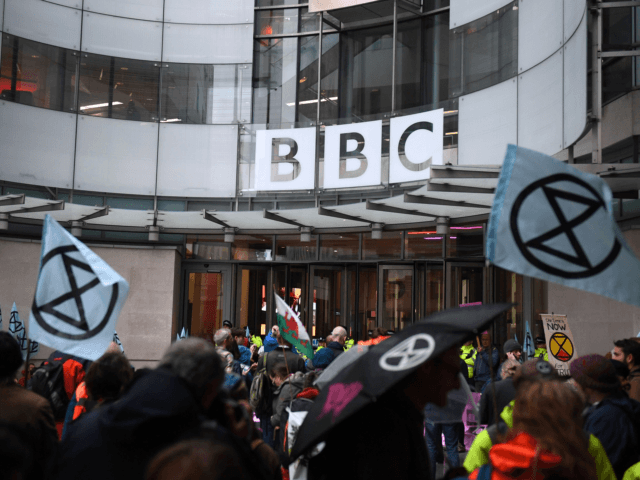The BBC has been revealed to have received hundreds of thousands of pounds sterling in advertising revenue from Saudi Arabia’s national oil company, as the publicly funded broadcaster is pumping out wall-to-wall coverage of the climate change summit in Glasgow.
Despite often touting its green credentials, the British Broadcasting Corporation has been raking in money from large oil producers throughout the world, according to advertising data compiled by MediaRadar.
Since 2018, the large fossil fuel companies have forked over an estimated $660,000 (£483,000) to advertise with the BBC. This includes £300,000 in advertising revenue from Saudi Arabia’s national oil company, Aramco, in the last year, alone, The Guardian reported.
BP, formerly The British Petroleum Company, Exelon, and Phillips 66 are other major fossil fuel firms reported to have spent at least five figures in advertising contracts with the BBC.
While the broadcaster does not run advertisements in Britain, relying on the licence fee imposed on virtually all live television viewers, regardless of whether or not they consume BBC content, their overseas operations are propped up by revenue from ads.
“We have clear guidelines around advertising which are publicly available,” a BBC spokesman insisted, adding that they “take care with all of our advertising to ensure it is not misleading.”
In October, the BBC announced a “deep decarbonisation” strategy to cut out the use of fossil fuels throughout its operations in order to hit its net-zero target by the year 2030. It is unclear if this “decarbonisation” will include the broadcaster giving up ad revenue from oil companies.
Despite its legally mandated purpose as a politically neutral broadcaster, the Beeb — as the broadcaster is colloquially known — has taken a firm political position on the supposed climate crisis, going so far as to ban climate change sceptics from its airwaves in 2018.
More recently, the BBC has entered into partnerships with the SNP-led Scottish government and an American retail giant to produce documentaries centred around climate change.
The bias of the broadcaster was put on full display during an interview with Prime Minister Boris Johnson during the COP26 climate summit in Glasgow this week, with BBC Chief Environment correspondent Justin Rowlatt drawing criticism for berating the British leader for allegedly being “weaselly” on the issue of coal-fired power plants.
During the summit, the BBC has had wall-to-wall coverage, with an analysis conducted by the Westminster gossip site Guido Fawkes finding that the BBC’s news website featured 14 articles covering the climate summit on its front page on Monday.
The site noted, however, that the coverage failed to reflect the actual interest of the British public — which funds the broadcaster through the licence fee — as its top ten most-read articles had nothing to do with climate change.
The BBC was not alone amongst the liberal mainstream media to have profited from fossil fuel cash, with MediaRadar reporting that, since 2016, the New York Times took $4.5m in fossie fuel ads, alongside $6.6m for CNN, $9.5m for POLITICO, and $12.8m for the Jeff Bezos-owned Washington Post.
Follow Kurt Zindulka on Twitter here @KurtZindulka

COMMENTS
Please let us know if you're having issues with commenting.